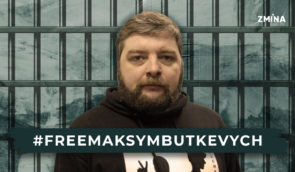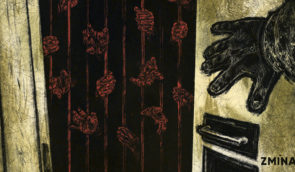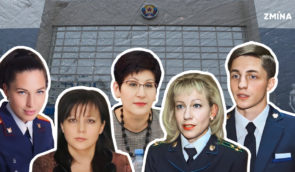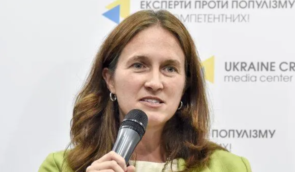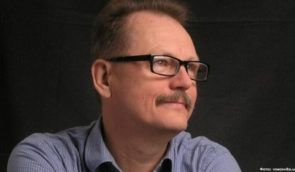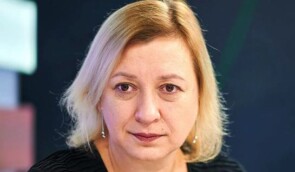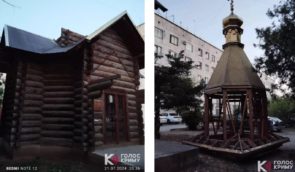Houseless people of Portland, or Humanity lesson on Easter day
“Houseless people are everywhere.” It was almost my first impression of the American city of Portland. Wrapped in blankets, the houseless were sleeping in the open air along the road, were asking for a dollar at food cars or were sitting quietly in front of shops with all their belongings, hoping to get a few cents in their coffee paper cup…
As it turned out later, the hotel where I stayed was located near the clinic providing free medical help and advice to people who live on the street. No wonder I was almost at the epicenter.


Having recovered from shock, I began to ask the locals: why so many houseless people are in wealthy, as it seems, America. The reasons are classic – lack of work, high rental prices, expensive medical and social services.
I also learned from local press that Portland had introduced open door policy for the houseless, so poor Americans from different states, as well as immigrants from different countries come here.
In 2015, the number of houseless people in Portland, Gresham and Multnomah, state of Oregon, was 3,800 people.

In Portland, I found out that a word “houseless” is more preferable than a word “homeless” as a person may have no house but every person should have shelter.
“JUST LIKE EVERYONE ELSE…”

…I open the door to shelter of the St. Francis of Asissi Catholic Church. About 300 houseless people come here to eat every day. They also have an opportunity to take a shower and relax here twice a week.
I enter the large hall and see many people of different age sitting at the tables and waiting for food.
I notice a small bookcase in the corner and a large encyclopedia of the famous people in science, culture and art among the books.
I also see a TV and a group of people around it.
I get acquainted with Isaac, the shelter manager. Having seen my camera, he said strictly: “Please, ask first whether people are not against being photographed. They are very sensitive….”
Only four people work constantly in the church’s shelter. However, volunteers, usually parishioners of the church, come every day.
The funds for maintenance of the shelter and foods are donated by local people, some money is provided from the local budget.
“Some houseless people always eat there, some come only once,” Isaac says.

I see that he does not deal with food only, Isaac tries to keep calm atmosphere in the shelter. If some controversy arises, he tries to “neutralize” the situation.
There will be special dinner, festive dinner on the eve of Easter [Catholic], today. The Lent goes on, so vegetarian meals will be served.


… About fifty people were waiting for the dinner at 5 o’clock. More visitors were coming. I met absolutely different people – young and old, women and men, more or less groomed, people with disabilities.
My first acquaintance is Steve, he is 37 years old. He has been living on the street for over four years.

As Steve told me, after he lost his job, he could not find a new one for a long time… Now he is living on the street.
“Are you happy?” I ask for some reason.
“Sometimes yes, sometimes no. Just like everyone else,” Steve replies calmly.
“WOODMAN’S” SMILE
When I talked with Steve, I noticed a man who was watching me carefully. He was kind of a woodman from a fairy tale. He had long unkempt hair, reddish mustache and beard, smiling eyes and a lot of wrinkles… I sit down at his table.

“Hello. Will you let me take your photo?”
The man keeps silence for half a minute, smiles in surprise and, finally, nods his head in agreement.
“My name is Ira. I am a journalist from Ukraine,” I get acquainted with the “woodman”. “What’s your name?”
The man is silent, looks around, as if he does not believe I address him, he smiles and is silent. Suddenly his neighbor begins to shout at him: “Michael, speak!”
Finally, I hear:
“M-i-c-h-a-e-l.”
My new friend utters the words very slowly, answers in simple sentences, makes long pauses.
“Y-o-u h-a-v-e an a-c-c-e-n-t-,” he says slowly.
“Of course. English is not my mother tongue,” I smile to Michael.
We speak a little bit of time. However, I did not learn much from Michael as it is difficult to speak for him. Then he decided to show me his leg in ulcers for some reason.
“Can you get medical care?”
“No … yes …” the man answers haltingly.
“How old are you?”
Michael thought for longer than usual, as if trying to count. In the end, he said he was 54 and he had been living on the street for at least 13 years.
“How do you sleep when it’s raining or snowing?”
“I cover myself with a blanket.”
“Is it all your stuff?” I point at some rather dirty bags near him.
Michael begins to take out a package with sunflower seeds, then shows me two new pairs of socks… He takes some other things in bags, shows something with his hands, as if he wants to gladden me.
We say goodbye like old friends, hugging.

“I HAVE A DOG…”
A gray-haired man was sitting near Michael. He had been reading a book before I came to them. As it turned out, it was a detective novel. His name was Virgin.

“Do you have a job?” I ask Virgin.
“I used to have. Not now, because I’m old already.”
“Old? How old are you?” I ask again.
“I’m 77.”
“77?!” I am surprised. “You look very young.”
My new acquaintance and a guard, who overheard us, laughed. Subsequently, Virgin told that he had been born in Ohio, Kentucky. Now he lives here, in Portland.
“I don’t have my own family. I have a brother and a sister, but I do not know where they are now.”
“What are you dreaming about?”
“To live a long life, till I am a hundred years old,” Virgin says quickly, without thinking.
“Really? And how is it… without a house?”
“I have a dog, Solfi,” Virgin says as if it is the biggest treasure in the world and it is quite enough to live for a quarter of a century more. And I believe him.
“FOLLOW ME”
Five o’clock – it’s time to serve food. Some volunteers put vegetable salad, mushrooms, bread; fruit salad and muffins were served as dessert. Other volunteers stood with trays. Everything worked like clockwork.



The houseless people were sitting quietly at the table. A man with the “Follow me” sign controlled serving of food and if everybody had enough meals. He guided the volunteers in the process of food serving.

Mostly young men were among the volunteers, even children helped.
Chas and Maggie are brother and sister. They came here with their mother, they were parishioners. The woman told that participation in life of the houseless had a good influence on upbringing of her children.

“I am 12 years old. I am here with my mother,” Maggie says. “I serve food, then I put away the plates…”
“Are you not afraid of so many strangers?” I ask Maggie.
She was confused.
“Not here. Sometimes on the street. Because sometimes they look somehow…” Maggie says shyly.
“It’s only because you do not know what to expect from a person who has a strange behavior. People are different,” the mother says.
15-year-old volunteer Aiden can be often met in the shelter.
“I have free time, so I’m here,” the guy says.
“But your friends watch TV, walk along the street…”
“Well, I’m here. Just here.”

I watched this teen with a perky hairdo working with interest.
“What do you dream about?”
“Probably, to become a musician. I love jazz, reggae…”
“How often do you hear gratitude for your volunteer work?”
“Often. Maybe three or four times a day….”
Almost nothing was left from the festive dinner an hour and a half later. The houseless went away. Those who helped to clean up stayed.

I noticed my new friend Michael was trying to clean the floor with a mop…

Saying goodbye to the shelter manager, Isaac suddenly said: “I am a Jew, but I work in the Catholic Church. Here we accept anyone who wants to be closer to God. Men, women, children are among our parishioners. We are open for gay, lesbian, transgender people…. Here you can see white, black, Asian people… Vegetarians and those who love meat… “


Portland – Kyiv, 2016
Photo made by author
Transcription of names may not coincide with original sounding
***
The article was prepared with the assistance of the Bureau of Educational and Cultural Affairs at the U.S. Department of State within the International Visitor Leadership Program (IVLP).

